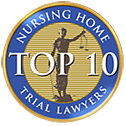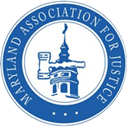Common Types of Injury in Maryland Facilities
There’s no doubt that it is a hard to accept when an elderly loved one’s needs clearly require professional assistance. Even those families who ask questions, do research and take tours before choosing a facility may never feel completely comfortable turning a loved one over to someone else’s care. And with good reason – elder neglect and abuse are a widespread problem in our society and can result in loss of independence, financial security, good health, dignity and can sometimes cause death.
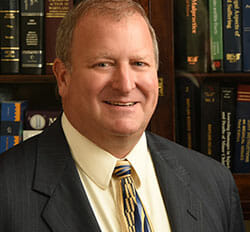 If you have entrusted your family member to a place that you suspect has broken its promise to care for them, you should seek the advice of a competent legal professional.
If you have entrusted your family member to a place that you suspect has broken its promise to care for them, you should seek the advice of a competent legal professional.
The Maryland nursing home negligence attorneys at the Law Offices of Roger S. Weinberg, LLC, can help you recognize the warning signs of abuse and get the justice and compensation that your loved one deserves.
Watch for Indications of Abuse
Be aware of what to look for if you think that abuse is occurring at a nursing home. Family and friends visiting patients should be vigilant, taking note of the resident’s surroundings, clothing, mental state, and physical condition. All of these can offer clues about the care being received. Common types of injury are:
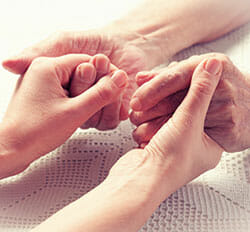 Physical Injuries – The most obvious signs of abuse are physical ones, such as bedsores, dehydration, malnutrition, broken bones, burns, cuts, bruises, bites and internal bleeding. [links to subpages here as well]
Physical Injuries – The most obvious signs of abuse are physical ones, such as bedsores, dehydration, malnutrition, broken bones, burns, cuts, bruises, bites and internal bleeding. [links to subpages here as well]
Physical Abuse – is the use of force to cause harm to another individual. This could include things like hitting, slapping, shaking, handling roughly and even burning someone. Using physical restraints, unless ordered by a physician, is also abusive, as are improperly administering medication and force-feeding.
Sexual Abuse – is non-consensual sexual contact of any kind. It encompasses all types of sexual assault or battery as well as unwanted touching.
Emotional & Mental Abuse – is the infliction of anguish, pain or distress through verbal or nonverbal threats and harassment. Caregivers guilty of this behavior may intimidate, humiliate or even isolate their victims.
Medication Mismanagement – includes withholding of prescribed medication, giving inadequate fluids or food to take medications, failing to properly shake or mix medication, giving the wrong dose, missing doses or using expired medication. More: Medical Neglect
Financial Abuse – involves wrongfully taking an elderly person’s funds or property through scams, theft, fraud or coercion.
Whatever the form, abuse of nursing home residents should never be tolerated. Unfortunately, these victims often cannot speak out against the people who harm them. Research by the Assisted Living Federation of America (ALFA) estimates that only one in six patients experiencing elder abuse actually report the event. Thus, it is crucial to report any suspicions that you might have that abuse is occurring. What may seem to be a minor injury could be the result of a much greater problem.
What About Neglect?
“Abuse” and “neglect” are often used interchangeably, but, in fact, they have different meanings. Abuse is the maltreatment of a person, while neglect is the failure to give proper care to someone. Abuse is a misuse of power, and neglect is deliberately forgetting and not caring. Nursing home neglect concerns an individual’s failure to meet the needs of an older adult who is under their care.
Not providing adequate food, water, shelter, clothing or taking care of personal hygiene are examples of neglect.
Both abuse and neglect are against the law and can take a terrible toll on a nursing home patient. Every resident has the right to be treated with dignity and respect, to be free from abuse and neglect, and to receive proper medical care. Be sure to listen to your loved one when visiting and don’t dismiss his or her reports, especially when complaining of mistreatment. Investigate the experiences of other residents and if you suspect a nursing home patient’s rights have been violated, report the incident to officials.
Call 1-800-91-PREVENT (1-800-917-7383) to reach Maryland Adult Protective Services.
Call 1-877-402-8219 to reach the Office of Health Care Quality.
Call 1-800-AGE-DIAL (1-800-243-3425) to reach the Maryland Department of Aging.
Contact Our Lawyers for Help
Then call the MD nursing home abuse lawyers at the Law Offices of Roger S. Weinberg, LLC, to arrange a free, confidential consultation. If your loved one suffered an injury or death due to a nursing home facility’s negligence or abuse, you need an experienced and knowledgeable attorney willing to fight for the compensation you and your loved one deserve.
We have successfully handled countless nursing home abuse and neglect cases — compassionately and aggressively.
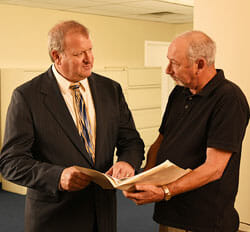 The Law Offices of Roger S. Weinberg, LLC, is a recognized elder abuse litigation law firm that primarily focuses on holding nursing homes and assisted living facilities accountable for their negligent actions. The firm also protects developmentally disabled individuals from the abuse and neglect that is often found in group home environments. Our founding attorney, Roger S. Weinberg, has been a lawyer for over 30 years. He has lectured nationally on the subject of nursing home abuse, and written educational articles for the American Association for Justice and the Maryland Association for Justice. In 2001, he founded and was the first chairperson of the Maryland Trial Lawyer’s Association’s Nursing Home Litigation Section (now MAJ). Put his experience to work for you by calling 410-825-3161 or filling out this online form.
The Law Offices of Roger S. Weinberg, LLC, is a recognized elder abuse litigation law firm that primarily focuses on holding nursing homes and assisted living facilities accountable for their negligent actions. The firm also protects developmentally disabled individuals from the abuse and neglect that is often found in group home environments. Our founding attorney, Roger S. Weinberg, has been a lawyer for over 30 years. He has lectured nationally on the subject of nursing home abuse, and written educational articles for the American Association for Justice and the Maryland Association for Justice. In 2001, he founded and was the first chairperson of the Maryland Trial Lawyer’s Association’s Nursing Home Litigation Section (now MAJ). Put his experience to work for you by calling 410-825-3161 or filling out this online form.


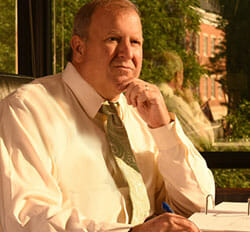 Roger Weinberg is a skilled and experienced attorney who has pioneered the legal field of representing Nursing Home, Assisted Living, and Developmental Disability victims and their families who have experienced abuse, neglect and wrongful death. He is a leader in this field and teaches other lawyers, students and medical personnel about the laws impacting such cases. [
Roger Weinberg is a skilled and experienced attorney who has pioneered the legal field of representing Nursing Home, Assisted Living, and Developmental Disability victims and their families who have experienced abuse, neglect and wrongful death. He is a leader in this field and teaches other lawyers, students and medical personnel about the laws impacting such cases. [ 